John Degenkolb: 'The worst part is behind me'
German Classics riders talks about his training crash, his comeback and how he overcame his fears
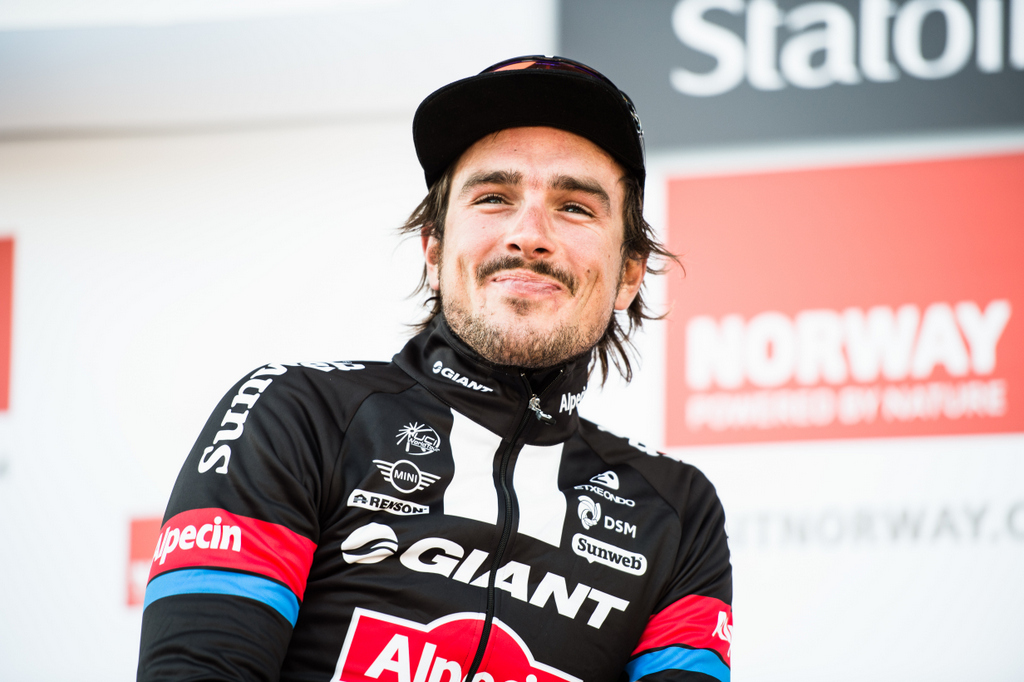
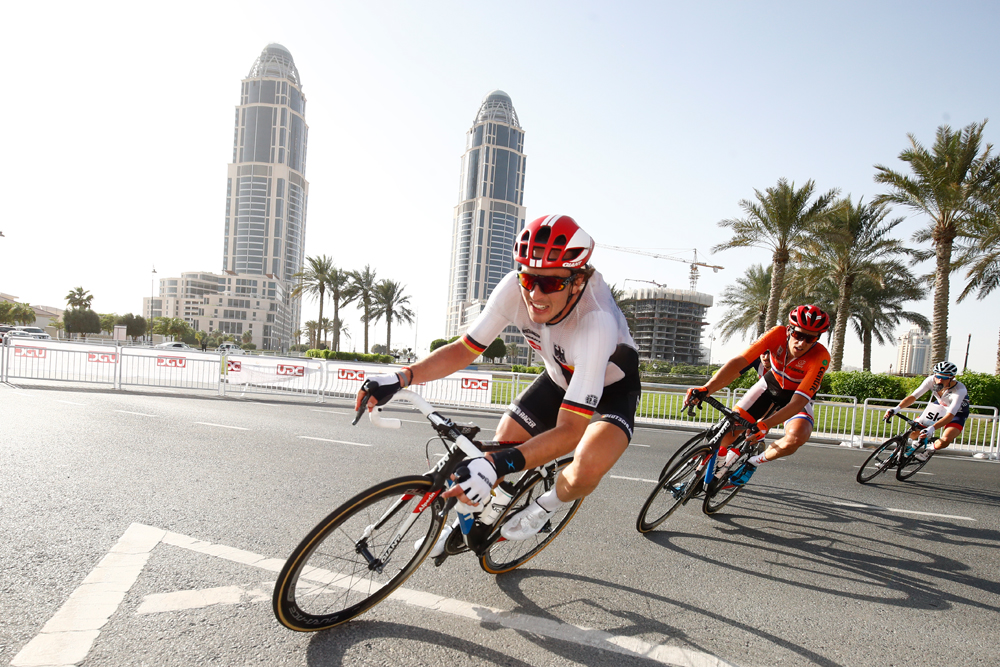
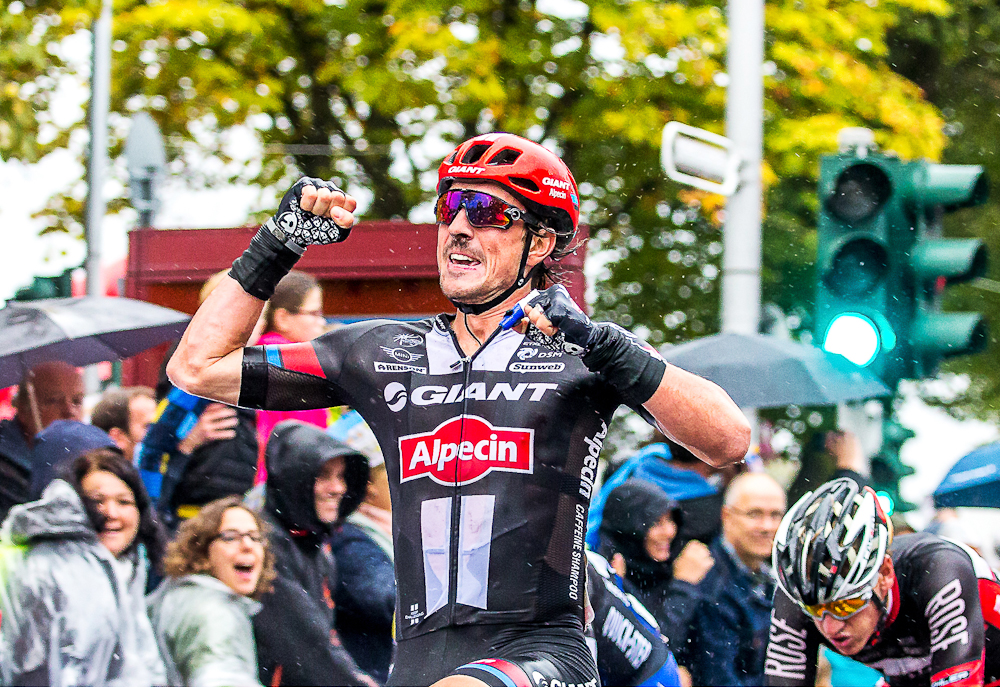
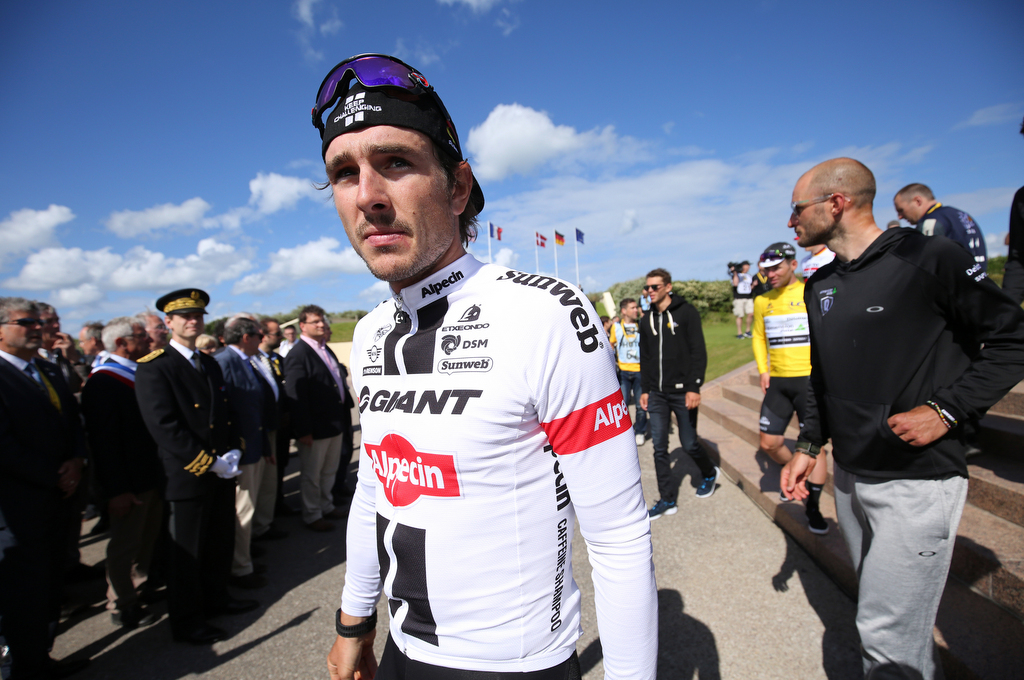
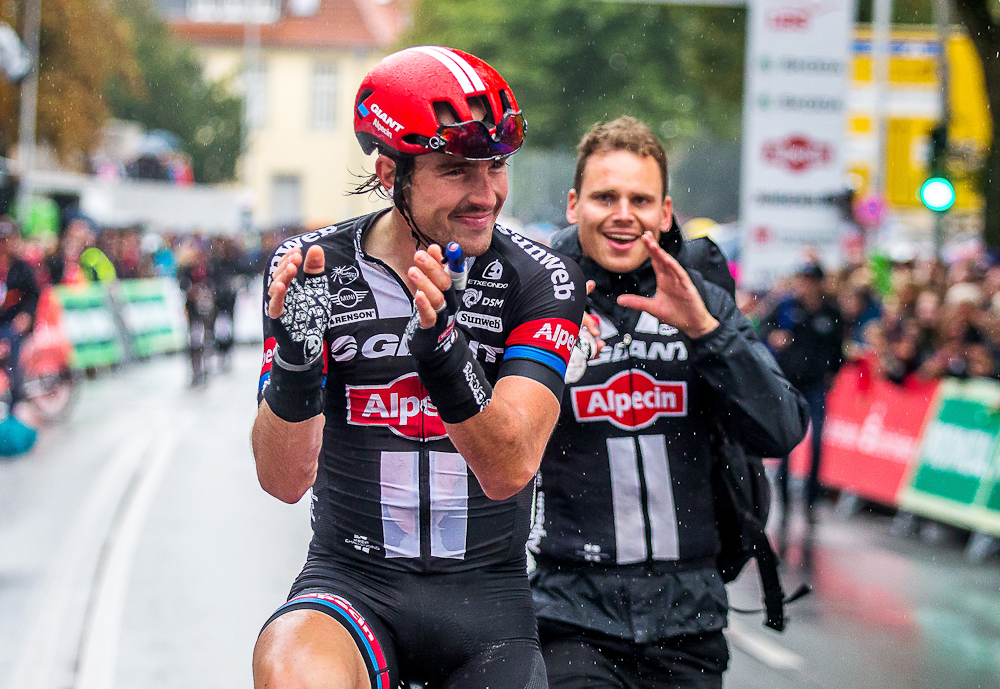
John Degenkolb believes his career is back on track after making a full recovery – both mentally and physically – after being hit by a car while training in Spain in January along with several of his Giant-Alpecin teammates.
Degenkolb, Haga involved in Giant-Alpecin training camp accident
Degenkolb aiming for Tour de France stage win after training ride crash
Tour de France: Degenkolb building self-confidence after best result of 2016
Trek-Segafredo sign John Degenkolb
First win of 2016 for Degenkolb at Arctic Race of Norway
Degenkolb back in action at Vattenfall Cyclassics
Degenkolb wins Sparkassen Münsterland Giro
Dumoulin, Degenkolb headline Giant-Alpecin's Worlds TTT roster
The 27-year-old German only returned to racing in early May after months of rehabilitation to restore movement in his left hand and finger but is looking forward to targeting the Classics once again just as he did in 2015 when he won Milan-San Remo and Paris-Roubaix. A move to Trek-Segafredo to some how fill Fabian Cancellara's shoes has given him extra motivation.
Degenkolb's left index finger was deeply severed in the crash but delicate surgery saved it from amputation. He has since learned to brake with four fingers but no longer needs to protect his finger when racing or when relaxing.
The deep scar on his finger was clearly visible as he talked to Cyclingnews at the recent Abu Dhabi Tour but other wounds and thoughts about the crash seem to have healed.
Degenkolb missed all the Classics and was frustrated at not being competitive in the Tour de France sprints. But then he won a stage at the Arctic Race of Norway and nearer home at the Sparkassen Münsterland Giro in Germany. He missed the attack that decided the World Road Championship in Qatar and vented his frustration by spraying water on Belgium's Jens Debusschere but showed some end of season form by finishing second on the opening stage of the Abu Dhabi Tour.
Degenkolb raced for a total of 59 days in 2016 but they were squeezed into six months and included his long comeback from the crash and the painful consequences.
"It was probably the most difficult season of my career so far. It was exhausting," he tells Cyclingnews while relaxing in a sofa chair, his legs hanging over one side, not afraid to share his emotions and memories of a traumatic year.
Get The Leadout Newsletter
The latest race content, interviews, features, reviews and expert buying guides, direct to your inbox!
"Mentally it was hard but physically, too. Of course, there were moments when I said: Fuck! It's too hard. But it's important you never give up. You've got to believe you can come back. I'm now at the point that I can say the worst part is behind me."
In survival mode
Degenkolb, Max Walscheld, Chad Haga, Fredrik Ludvigsson, Ramon Sinkeldam and Warren Barguil were all taken to hospital after they were hit by a vehicle while training near Calpe. They suffered serious injuries and fractures, with glass cutting Haga's face and neck and Degenkolb's finger.
Degenkolb reveals he cannot remember the moment of the accident but recalls how some kind of sense of survival kicked in while he was on the ground, injured, and in shock with his teammates.
"Until the moment we hit the car I can remember everything. After that there's about ten minutes that I can't remember anything. I can only remember when we were lying on the ground waiting for ambulance with my coach there to help us," he recalls.
"Of course if you look at your hand and see your finger hanging in the wrong direction, it's not nice, but in moments like that you find special reserves and emotions that help you survive. I was lying there awaiting the ambulance but I was able to call my wife and assure her that everything was okay. That showed how the body can defend itself and keep you feeling okay. Of course after you realise how crazy it was.
"The most difficult moment came when I was in hospital and I knew the extent of my injuries but I didn't know if I'd be able to make a comeback, how I'd come back. That was the crucial period for me. That's when you have to be mentally strong and stay focused."
Degenkolb paused as he speaks, perhaps remembering certain moments but insisting he has worked though the trauma and emotions without any kind of professional psychological help.
"For me it was very important not to hide away and try to avoid conversations about it. Talking helps you handle it all and move on," he explains.
"I haven't spoken to a mental coach or anything but it was important for me to speak to my friends and family about it. I think I handled it well and I don't feel scared of the bike in traffic for example. For me it's over. It happened but I am not scared anymore."
A key moment in his comeback
Degenkolb insists he has rediscovered his fighting spririt for sprints and racing, the ability to overcome fear and hesitation that is needed to race on the cobbles in the Spring Classics or dive into a tiny space at 70km/h in a hectic sprint finish.
A key moment during his comeback happened during the Tour de France. His best result in sprints were two fourth places but they were hugely important.
"It was about halfway through the Tour de France, when I got fourth in a hectic sprint that I realised I was back to my level and realised that I could win big races again. That moment was very important," he says.
"You can talk about things and you can have support from people saying you'll be fine, but until you feel it yourself, then you don't believe it and don't believe 100% in yourself. Feeling that moment was very important for me.
"The thing I was missing to be competitive in the Tour de France was simple fitness. Compared to the other guys I started racing in May, that's a huge disadvantage on the other guys who have been racing and training all season. You have to slowly make up for it but it's not because they're training hard too.
"That's why it was such a big relief to win races again, in Norway at the Arctic Race and then in Germany. I haven't done a lot of races this year but I made it back. That's why I'm tired but also really motivated to do good next year.
"Joining Trek-Segafredo has also given me some extra motivation because everything is new and feels different. It'll be refreshing. I'm 100% sure that the Classics will be great next year."
Degenkolb talks in detail why he decided to leave Giant-Alpecin, his decision to move to Trek-Segafredo and his ambitions for 2017 in the second part of the interview that will be published next week.

Stephen is one of the most experienced member of the Cyclingnews team, having reported on professional cycling since 1994. He has been Head of News at Cyclingnews since 2022, before which he held the position of European editor since 2012 and previously worked for Reuters, Shift Active Media, and CyclingWeekly, among other publications.